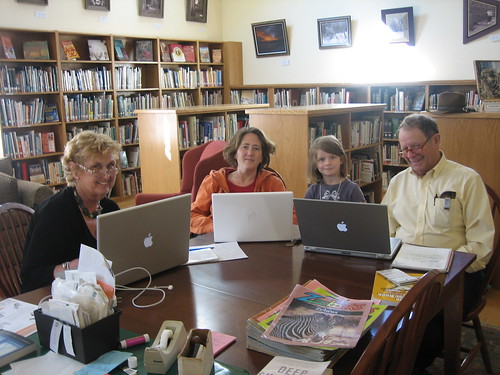Now that I’ve gotten back from ALA and gotten some sleep, I’ve been ruminating over privacy topics some more. The panel went well. I also read Cory Doctorow’s book Little Brother on the way home — they were giving away copies at the panel — and enjoyed it quite a lot. It’s a YA just-barely-dystopian book about a terrorist-seeming event and the Bay Area lockdown that follows and how a group of tech savvy teens respond, and how others respond. It’s a good book.
During the panel, we were talking about things you’d want to keep private that you don’t necessarily need to keep secret. Sex and bathroom activities were two obvious examples. This then led to a discussion, more like hitting on a few points, about library records and how there is a difference between trashing them — so you can legitimately say “we don’t have any records to show you” — and obscuring them, say through encryption, so that the records are available to, say, patrons and yet not to librarians or, it follows, to law enforcement. I found this idea intriguing. Now that we’ve done a decent job making the point that patron library data is data that we protect, maybe we can make that protection more sophisticated so we don’t have to protect it by completely eradicating it. Maybe.
Anyhow, I got grabbed outside of the panel by Library Journal and I talked a little bit about this.
Also can I just say that Library Journal’s coverage of ALA was really engaging and worth reading this year? I haven’t been following ALA conferences in a while but I was surprised how much I enjoyed reading about this one in addition to attending it.
